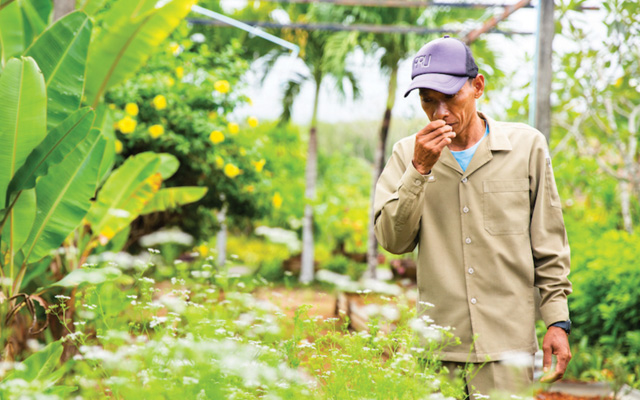Phuket is working its way into the hearts of travellers via the culinary route, with an increasing focus on sustainable dining, discover Anne Somanas and Karen Yue
Thailand, the world’s fourth most favoured travel destination for international tourists according to the Visa Global Travel Intentions Study last year, is loved for many things. However, gourmet draws may well be the one common magnet for almost all loyal fans of the destination.
Making a move on foodies, the Tourism Authority of Thailand (TAT) launched in May the Amazing Thailand Culinary City project to further develop and promote Thailand as a world-class gastronomy tourism destination.

But the most interesting gastronomy push may well be in Phuket, which was recognsied by UNESCO as Gastronomy City of the World in 2015.
Overall, Phuket is experiencing a remarkable transformation in its dining scene – one that’s increasingly focused on sustainability and eco-consciousness.
Phuket’s fine dining establishments are at the forefront of this wave. Restaurants like Pru at Trisara (reopening in November), Jampa at Tri Vananda, and Hom at Intercontinental Phuket are setting new standards for sustainable gastronomy on the island.
Pru holds one Michelin star and earned a Michelin Green Star this year. Jampa, which also shares Trisara’s owner Montara Hospitality Group, earned a Michelin Green Star earlier this year for its zero-waste, plant-based food. Both restaurants source from Montara’s Pru Jampa organic farm, which also supplies herbs, vegetables, fruits and eggs to Trisara’s kitchens.
Pru Jampa is working to share its accomplishments in sustainable farming, and will host Local Roots by Jampa community market on November 4, during which sustainable produce from local farmers and hospitality providers will be showcased. Visitors can pair their sustainable shopping with a low impact meal at Hideaway at Jampa, a rustic restaurant tucked away in a serene and scenic part of the farm and helmed by Jampa’s chef Rick Dingen.
Björn Courage, general manager of Intercontinental Phuket and president of the Phuket Hotels Association, said: “We’d love to see sustainable dining at the Michelin level expanded for Phuket.”
His hotel has hired Portuguese chef Ricardo Nunes – formerly from Bo.lan in Bangkok, a one Michelin-star that shut down in 2021 – to head the new fine-dining establishment Hom.
Nunes’ 10-moment tasting menu is rooted in locavorism, seasonality and creative fermentation of lesser-known local ingredients such as stinky beans or jungle berries.
Phuket showed off its accomplishments in responsible dining at Phuket Hotels for Islands Sustaining Tourism conference in September. On display were canapes, kombucha and ice cream crafted from Veya Pharm’s organic produce grown onsite at Banyan Tree Phuket.
Tipaporn Phianthong, head chef of Banyan Tree Phuket’s Saffron Restaurant, gravitates towards ingredients from local farms because the reliance on natural farming processes without chemicals elevates the taste of produce.
Phuket’s sustainable dining movement is going deeper with the help of the Sustainable Tourism Development Foundation, which leads the Food (Before) Waste programme. The initiative repurposes leftover food from hotel buffets and surplus supermarket items and gets culinary students to prepare hygienic meals that are offered under a pay-as-you-wish model at the foundation’s Metta Kitchen.
However, Bill Barnett, founder of C9 Hotelworks, believes that Phuket’s hospitality sector still has a long way to go in achieving dining sustainability.
“Broadly, over 50 per cent of food in hotels goes to waste and the real numbers are in larger, volume-oriented hotels,” he said.
As Phuket’s tourism market makes a strong comeback, he believes that travellers speaking out about their willingness to adopt the green premium could also help to foster change.
















